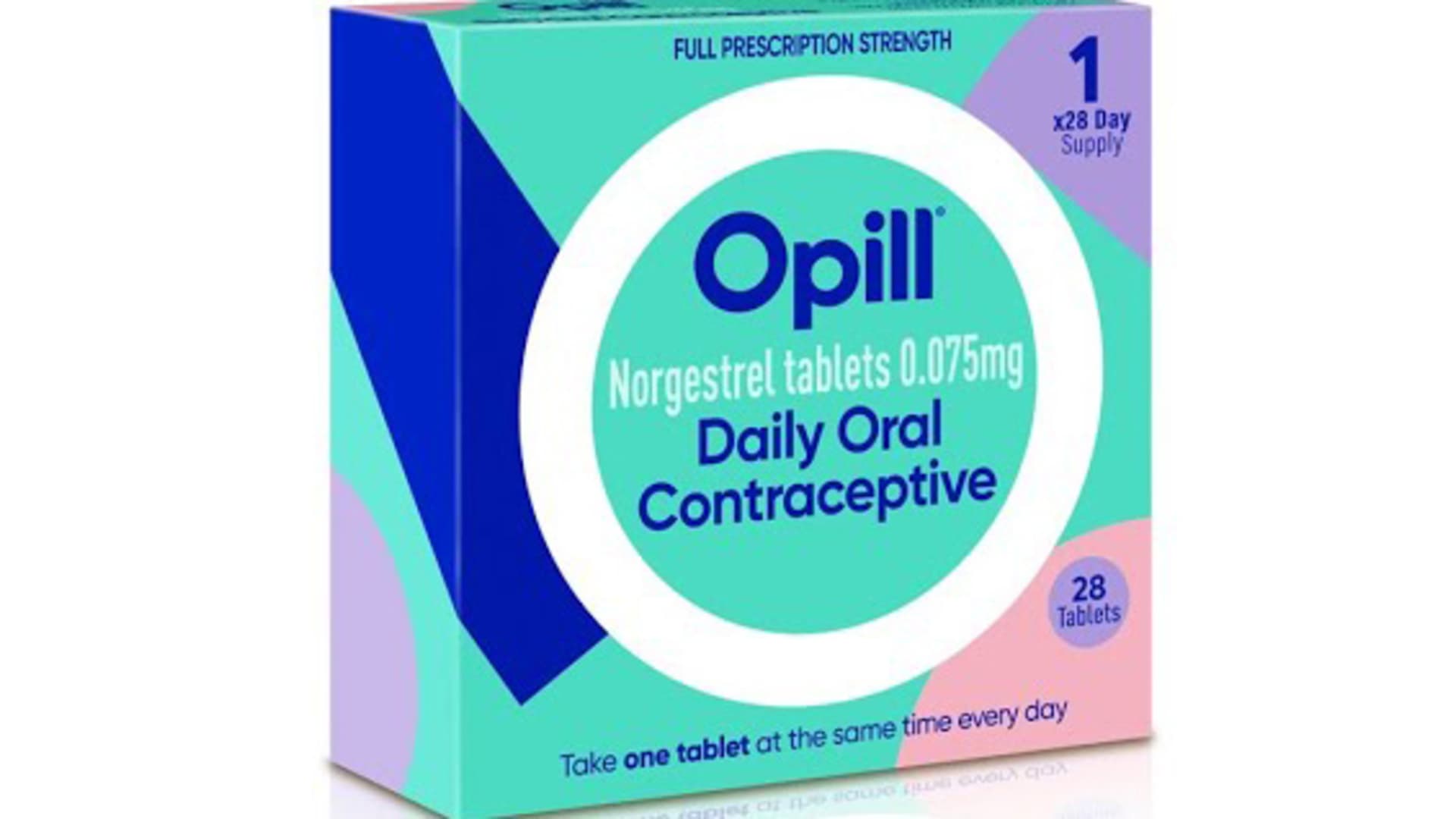HRA Pharma expects a final decision by the FDA this summer on its application for nonprescription sales of Opill, which is generically called norgestrel.
Source: Perrigo
The Food and Drug Administration on Thursday approved the first over-the-counter birth control pill, a landmark decision that will allow more women and girls in the U.S. to prevent unintended pregnancies without a prescription.
The daily pill, called Opill, was first approved by the FDA as a prescription in 1973.
The pill’s manufacturer, Paris-based HRA Pharma, said the contraceptive would most likely be available at stores and online retailers in the U.S. in early 2024.
HRA Pharma, a unit of Dublin-based pharmaceutical company Perrigo, said there will be no age restrictions on sales of the pill.
HRA Pharma has not announced the price of the pill, which will determine how affordable it will be to the public. But the company is committed to making the pill “accessible and affordable to women and people of all ages,” Frederique Welgryn, Perrigo’s global vice president for women’s health, said in a statement.
Perrigo’s stock price jumped 5% in early trading Thursday following the announcement.
Opill could significantly expand access to contraception, especially for younger women and those in rural and underserved communities who often have trouble getting their birth control.
“Today’s approval is a groundbreaking expansion for women’s health in the U.S., and a significant milestone towards addressing a key unmet need for contraceptive access,” said Welgryn.
Oral contraceptives have long been the most common form of birth control in the U.S., used by tens of millions of women since the 1960s. But until now, all of them required a prescription.
Medical organizations like the American College of Obstetricians and Gynecologists and women’s health advocates have pushed for wider access, noting that an estimated 45% of the 6 million annual pregnancies in the U.S. are unintended.
Those pregnancies have been linked to negative outcomes, including the reduced likelihood of receiving early prenatal care and increased risk of preterm delivery, according to the FDA. Those complications are also associated with adverse developmental and child health outcomes, the agency said.
Dr. Patrizia Cavazzoni, director of the FDA’s Center for Drug Evaluation and Research, said in a release that daily oral contraception is safe and “expected to be more effective than currently available
nonprescription contraceptive methods in preventing unintended pregnancy.”
Other nonprescription methods include condoms and spermicide.
Opill was found to be 93% effective in preventing pregnancy, similar to prescription oral contraceptives.

